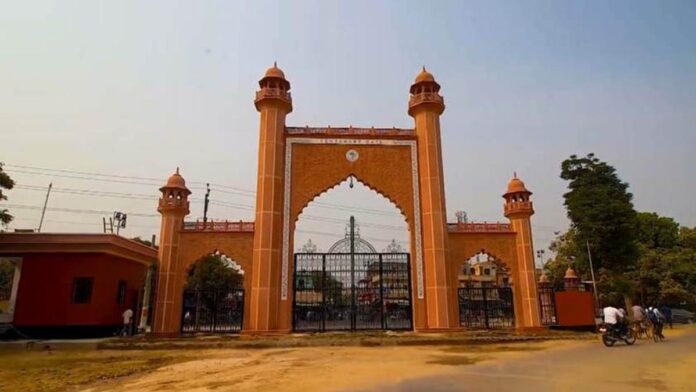
A view of Aligarh Muslim University campus.
| Photo Credit: Special Arrangement
The Aligarh Muslim University Teachers’ Association (AMUTA) has “wholeheartedly welcomed” the Supreme Court’s judgment affirming the right of Aligarh Muslim University to seek minority status.
“This historic decision reaffirms AMU’s unique character and acknowledges its foundational purpose of serving the educational aspirations of the Muslim community while remaining inclusive of all sections of society,” a release issued by AMUTA secretary Dr Obaid Siddiqui said.
He said AMUTA would issue a comprehensive statement following consultations with all stakeholders and extended gratitude to the lawyers, alumni, and numerous individuals who have been instrumental in securing the outcome, which, he said, “upholds the principles on which this esteemed institution was established.”
Dr. Siddiqui said AMUTA looked forward to the speedy resolution of the minority character case as directed by the norms set by the Constitutional Bench. “We have full faith in the judiciary and the constitution of our country that recognises not only the diverse plurality of all our compatriots but also the diverse rich traditions that we carry that make us vibrant, competitive, and rank in lists of excellence globally.”
Comprehensive win for minority rights: AMU fraternity
PTI adds:
Professor Faizan Mustafa, a constitutional law expert and former registrar of AMU, who had filed this case in the Supreme Court in his ex-officio position, told PTI, “It is a comprehensive win for minority rights in general and AMU in particular.”
Dr Rahat Abrar, former director of AMU’s Urdu Academy and historian, who played a prominent role in providing vital historical documents to legal experts in the case, said the judgement has validated the claims of the AMU community which had always maintained that the case should be decided based on historical evidence on the identity of those organizations and individuals who had envisaged the idea behind this institution and worked for its establishment.
In a 4:3 majority verdict the Supreme Court overruled the 1967 judgment that said the university cannot be considered a minority institution since it was created by a central law. The Bench laid down tests for considering the issue of AMU’s minority status. The question of Aligarh Muslim Unversity’s (AMU) minority status will now be taken up by a new bench.
Published – November 08, 2024 03:15 pm IST
